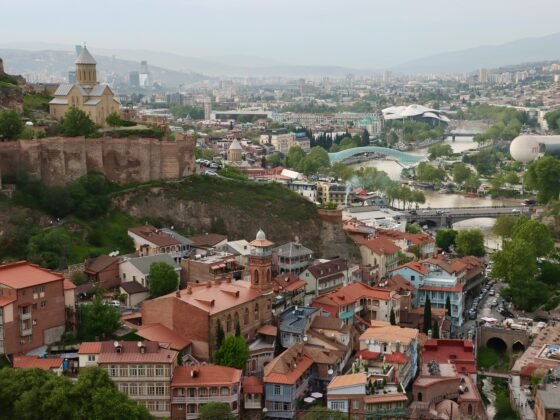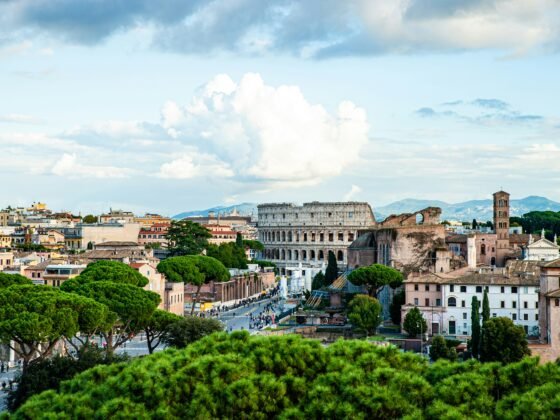Costa Rica became a sovereign nation in 1821, and September 15 is the holiday marking its peaceful transition to self rule. On that day in 1821, the Spanish suffered their final defeat during the Mexican War of Independence, and Guatemalan authorities declared independence from Spain for all of Central America. While civil wars and violence plagued much of the region in the years to come, Costa Rica remained at peace.
Costa Rica has succeeded in maintaining its status as a peaceful nation right up to the present day. Within this harmonious climate, a stable economy, world-renowned educational system and strong support for biodiversity conservation have flourished. On this last subject, the progressive freedom of thought among the citizens has helped build a strong awareness of environmental issues and proven leadership in the sustainable tourism industry. Protecting its natural heritage is the key to Costa Rica’s economy and its future as a free country.
We sat down with several Costa Rican tourism professionals to find out more about what the National Independence Day holiday means for them.
What does the Independence Day holiday mean for Costa Rica?
The holiday is a very important date and it represents the way of life for all in Costa Rica. We are independent, we are free, we are happy.
~ Emilio Zúñiga, local Costa Rican partner of Green Path Transfers, a global network of competitively priced, eco-friendly airport transfer and ground transportation operators
What does the holiday mean for you personally?
I have spent my entire work life convincing people that they can be independent in their minds – trying (and sometimes succeeding) to make them see a different point of view, where peace is possible, where conservation of our planet is possible… as long as we take responsibility to embrace it.
Being independent is a responsibility more than a right; it takes effort, self-control, humility and a great share of self-knowledge. We cannot be truly independent if we are not alert to all that invades us from all directions. Independence starts in the mind, and traveling is the quickest and most amazing way to be truly independent.
~ Olga Saenz, Certified Tour Guide
How do you plan to celebrate Independence Day this coming September 15?
My plan is to attend the parade on the 15th in the old capital of Costa Rica, Cartago, but on the 14th I will also go to the center of Cartago to see all the kids carrying the traditional faroles lanterns. The children make the faroles at school and decorate them, according to the traditional colors of the Costa Rican flag, in blue, white and red. The faroles take all kinds of forms and colors and at night in the parade they turn them on with candles.
~ Alberto Molina, local Costa Rican partner of Gunyah, which offers authentic and memorable short breaks around the world, operated by local experts in each destination
Costa Rica is often cited for its strong commitment to and leadership in protecting the environment. In what ways is this important to ensure a peaceful and prosperous future and how does your travel business work to support this goal?
Protecting our environment is something well positioned in the minds of all Costa Ricans and our company is no exception. To help the environment, we guarantee to all of our clients that their trip is 100% carbon offset through our partnership with Green Path Transfers. We also have a local reforestation program in which every six months we plant about 500 different species of local trees.
~ Emilio Zúñiga, local Costa Rican partner of Green Path Transfers, a global network of competitively priced, eco-friendly airport transfer and ground transportation operators
Costa Rica is indeed known worldwide for its commitment to preserving its natural resources through policy, having set aside a sizable percentage of its land in national parks and other natural reserves. In practice preserving natural areas is an ongoing challenge, but Costa Rica has dedicated significant resources to doing so and preserving the precious biodiversity that resides within our country’s borders. By maintaining a healthy environment that contains natural wonders – which thankfully many travelers from around the world are interested in experiencing first-hand – we ensure the environmental health of Costa Rica as a travel destination. A healthy destination provides opportunities for a cross-section of local people to participate in the tourism industry in a sustainable manner. With tourism being the largest industry in Costa Rica, the economic benefits local people receive contribute to the wellbeing of the entire country and its peaceful political stability.
~ Irene Edwards, cofounder of Greenspot, a top travel specialist for Costa Rica
What is Pura Vida and what are the best ways for travelers headed to Costa Rica to experience it?
Pura Vida can mean so much – it depends on the tone of voice in which it is used. It can mean disappointment, flexibility, happiness, optimism, “I am fine thank you” or “I don’t care.” I think the best way for travelers to experience it would be if it were said in the context of flexibility, happiness and optimism. If travelers show these qualities, it is quite likely that they will experience it that way.
~ Tobias Schnellbächer, writer at Tierralinda, a blog about everything regarding investing and living in Costa Rica
Pura Vida means everything is fine. This would be the answer to the questions about a country in which people will give you a smile and help you when you need it. It is like our Disney’s “Hakuna Matata.” In Costa Rica, you will always find people that will help you, who are generally gentle, spirited, friendly, educated, polite and kind. Most seem to like visitors from other countries and treat them well. There are, of course, exceptions, but on the whole, you can expect to be made welcome wherever you go. The language is Spanish, though some Ticos speak English fairly well, especially if they work in tourism. If you are just visiting, you won’t have to know how to speak Spanish. Be sure to contact a travel agency that has CST (Certification of Sustainable Tourism) and is recognized so you won’t have problems with tourist services.
~ Sylvia Suarez Gonzalez, sustainable travel consultant at GRINN (Green Innovations)











